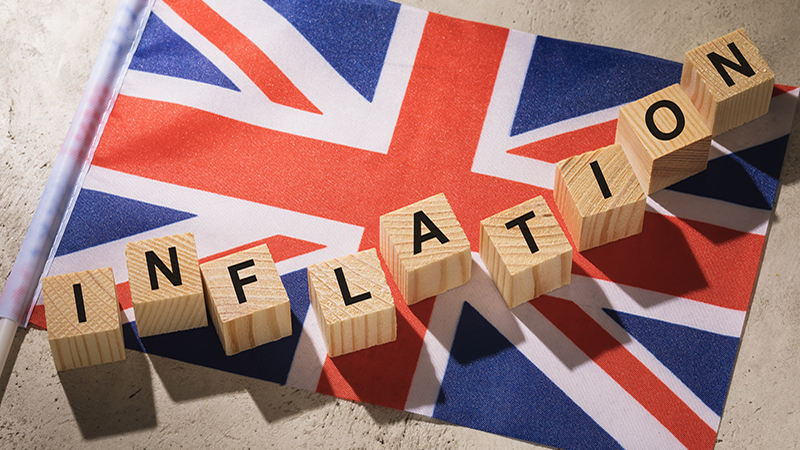UK inflation rose further than expected in April, hitting 3.5% as the effect of higher household bills kicked in.
Analysts had forecast a 3.3% CPI print, up from 2.6% in March.
The rise was driven by large regulated price increases, including to utility bills, mobile phone charges and vehicle excise duty.
Water bills saw their largest monthly increase since the industry was privatised in 1989.
Businesses passing on higher National Minimum Wage and employers’ National Insurance (NI) contributions to consumers also impacted the reading.
See also: What does Moody’s downgrade mean for bond investors?
Core inflation, which strips out volatile costs such as food and energy prices, also rose further than anticipated to 3.8%, up from 3.4% in March.
“Looking forward, it is unclear whether businesses can fully pass on higher labour costs to consumers through price increases,” Daniel Casali, chief investment strategist at wealth manager Evelyn Partners, said.
“Given tight margins in the retail sector, food retailers are likely to pass on these costs, adding further complexity to the BoE’s Monetary Policy Committee (MPC) decisions on inflation and interest rates.”
Casali says if inflation continues to exceed expectation, the MPC could delay a further interest rate cut at its next meeting on 19 June, particularly if news on the real economy remains stable.
Luke Bartholomew, deputy chief economist at Aberdeen, added the print will reinforce concerns raised by the BoE’s Huw Pill that underlying inflation pressures are sticky, leaving less rom for the central bank to cut interest rates.
See also: High GDP growth exceeds expectations, but experts warn of slowdown
“Nonetheless, we think a quarterly profile of rate cuts remains appropriate, but the chance of the easing cycle speeding up any time soon has fallen,” he said.
“Things on the global picture are equally looking less beneficial for inflation,” added Lindsay James, investment strategist at Quilter.
“President Trump has watered down his tariffs, with further ‘trade deals’ for the US to be announced.
“Tariffs were expected to be disinflationary for the UK as global demand was expected to reduce and low-cost Chinese imports were expected to find their way to Europe and the UK in greater quantities.
“We may be out of the ‘higher for longer’ phase for interest rates, but today’s figures and recent news indicates that we cannot expect rates to fall as quickly as markets would like.”
This story was written by our sister title, Portfolio Adviser








